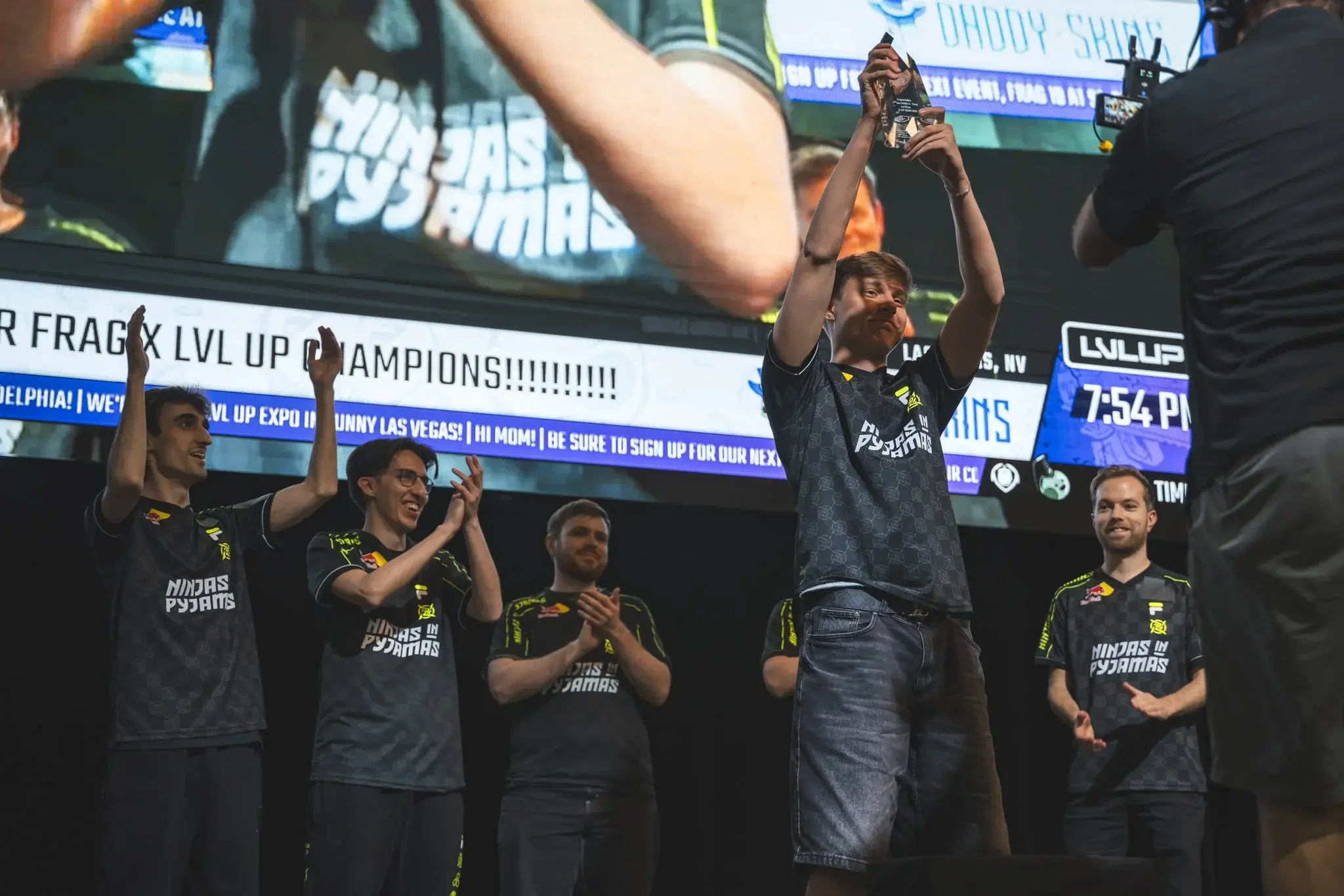- Yare
Article
20:17, 12.06.2025
![[Exclusive] Is Valve Killing the Competitive Spirit in CS2? Breaking It Down with the PROs](https://image-proxy.bo3.gg/uploads/news/205378/title_image/webp-01cdd1480654dd86de059f95e8093e74.webp.webp?w=960&h=480)
Like the rest of the community, we were shocked by the announcement that there would be no qualifiers ahead of the StarLadder Budapest Major 2025. We reached out to professional players, coaches, and organization CEOs for exclusive comments on the matter.
Background
On June 11, tournament organizer StarLadder announced that Valve had mandated the cancellation of the MRQ for the Budapest Major, which is set to take place later this year. What’s notable is that Valve made this decision just five months after introducing the MRQ format to replace the previous RMR tournaments. Unlike the RMRs, the MRQs were held online and determined the 16 teams that played in the Stage 1 of the BLAST.tv Austin Major 2025.
This sudden decision caught not only casual community members off guard but also professional teams. Most likely, this change will make life even harder for tier-2 and tier-3 teams, especially considering that most major events no longer offer open qualifiers. Furthermore, if the current procedure for obtaining “ranked” status for tournaments remains unchanged, the value of local LAN championships like Conquest of Prague 2025, Elisa Nordic Championship 2025, and Fragadelphia x LVL UP EXPO 2025 will only increase.

As a result, esports organizations may begin to exploit the VRS system more aggressively, continuing to take advantage of existing loopholes. Valve risks killing the very essence of competitive CS and turning the pro scene into a stagnant swamp.
The Cancellation of MRQs Was Predictable
After the introduction of the VRS system and the cancellation of open qualifiers for the BLAST.tv Austin Major 2025, it was foreseeable that the MRQs — which had replaced the RMRs — would eventually meet the same fate. In doing so, Valve seems to be aiming for full control over the market. However, these hasty decisions, combined with an underdeveloped system, could lead to the downfall of many teams.
To be honest, it was all leading up to this because when they created this ranking system and started using it, it was obvious that it would eventually turn into a system for certain invites. And now, according to this ranking, teams will qualify for events. Whether this is good or bad — time will tell. But there are major events where all teams earn ranking points, and again, after six months, they either make it into the top 32 teams or they don’t.Arsenij "ceh9" Trynozhenko

The Tier-2 Scene Might Drown in 322
Given that reaching the top 32 teams in the world according to the VRS system will become an almost impossible mission, more and more tier-2 and tier-3 teams are likely to start organizing match-fixing schemes just to survive. This is already a serious issue, but now it could escalate to unprecedented levels.
As a result, the CS2 ecosystem may face the same fate as Dota 2 — a single competitive region and only about ten teams earning money legally.
I think the removal of MRQ is really negative for tier 2-3 scene, because they will lose the opportunity for the international stage.Džiugas "dziugss" Steponavičius
Moreover, due to the lack of support for the tier-2 and tier-3 scene in Dota 2, the influx of new talented players has almost completely dried up. The same threat now looms over CS. First, organizations will begin shutting down their academy projects, and eventually, only a few will keep their main rosters alive.
When we see certain changes, we want there to be a clear logic behind them. Let’s say the goal is to gather the best teams based on the season’s results. Fine, they are achieving that. But immediately a counterpoint arises: the current system is set up so that only top-tier teams receive invites. The question then becomes — how can a tier-2 team break through and compete to earn their right to participate in these tournaments? The system simply doesn’t provide any loopholes for that.
There are options for online tournaments for tier-2 teams, but to earn enough points through them to qualify for major LAN events, a team has to do something unimaginable. Even the best grinders on the tier-2 scene can’t break through this system because teams earn many times more points at LAN events. That is, you play at a LAN and get four times more points than online. To me, this point distribution feels unfair. Under the current system, a tier-2 team has to achieve something completely unrealistic to make it to a big tournament.
Consequently, the principle of equal and fair conditions for everyone is violated. The system still follows the rule: “for the rich — everything, for the poor — the slums,” and on top of that, we know how much dishonesty exists. That’s why I don’t like this change. I believe it will harm the entire Counter-Strike scene. There will be much less investment in the industry. And investments are one of the main reasons why new, great, young players emerge.Mykhajlo "kane" Blaghin
Is It Really That Bad?
Among pro players, there’s a common belief that the recent changes aren’t entirely negative. And maybe they’re right. Now, consistent long-term performance will matter much more than selectively attending tournaments. In theory, that’s a positive shift — but only for tier-1 teams.
What about the tier-2 scene? It seems everyone has forgotten about it.
Probably, there’s more good than bad in this — because by showing consistent results throughout the season, you’re guaranteed a spot at the Major. That’s better than random BO1 qualifiers. However, there is a downside here too: we’ll no longer see those emotions and excitement that come with qualifying for a Major.Dmytro "dem0n" Myroshnychenko
Former pro player ceh9 also considers Valve’s decision to cancel the MRQ acceptable. However, Arseniy urges the developers to reconsider their approach to determining which tournaments award VRS points to teams.
It seems alright overall, but the question is about the quality of the events happening over the six months where points are awarded. A recent example is the situation with B8, who aren’t going to Serbia because of a Russian sponsor, even though they need the points. This raises the question: why even allow such operators to run these events? That’s a question for Valve. Right now, they need to “clean up” the tournament scene and leave only reputable, reliable organizers.Arsenij "ceh9" Trynozhenko
So What Are We Left With?

First and foremost, we’re looking at an even greater amount of grind from tier-2 and tier-3 teams. Where will that lead? Some will persevere and eventually break through to the tier-1 level — but others will burn out and, more than likely, start looking toward match-fixing as a means of survival...
The cancellation of the MRQ is a controversial decision. On one hand, it simplifies the qualification structure and probably makes the path to the Major clearer for top teams. On the other hand, it delivers a significant blow to the tier-2 and tier-3 scenes, where young teams lose yet another chance to prove themselves.
Thanks to the MRQ, teams like ours had the opportunity to make a name for themselves, showcase their level, and win the hearts of thousands of fans.
From the very beginning, we set ambitious goals — and now, after these changes, we are even more confident that we need to work harder to achieve them in the future.Artemijs Rjabovs, CEO Passion UA
And on top of that, we’ll see even more dissatisfied players, teams, and organizations.
We will end up with closed leagues — exactly what Valve supposedly fought against. Valve wanted to create equal and accessible conditions for everyone. Instead, they are turning our sport... For me, Counter-Strike was a sport precisely because at least the principles of equality for all and the pursuit of fair play were preserved. Now, that’s no longer the case.
I fell in love with this game primarily because it replaced football for me during a certain period of my life. In it, I found those same principles of fair competition. Now, that’s gone.
I am very disappointed and saddened. I wish there was some way to reach those people making these decisions, but unfortunately, I don’t know the right channels to do so.Mykhajlo "kane" Blaghin
If Valve doesn’t make any further changes, we can very well expect an exodus of esports clubs from the CS2 scene. Is that a good thing? Of course not. Is it the right decision by Valve? Only time will tell. All we can do is hope these aren’t the final changes to the VRS system and that the developers don’t ruin a discipline with more than 20 years of history.








Comments